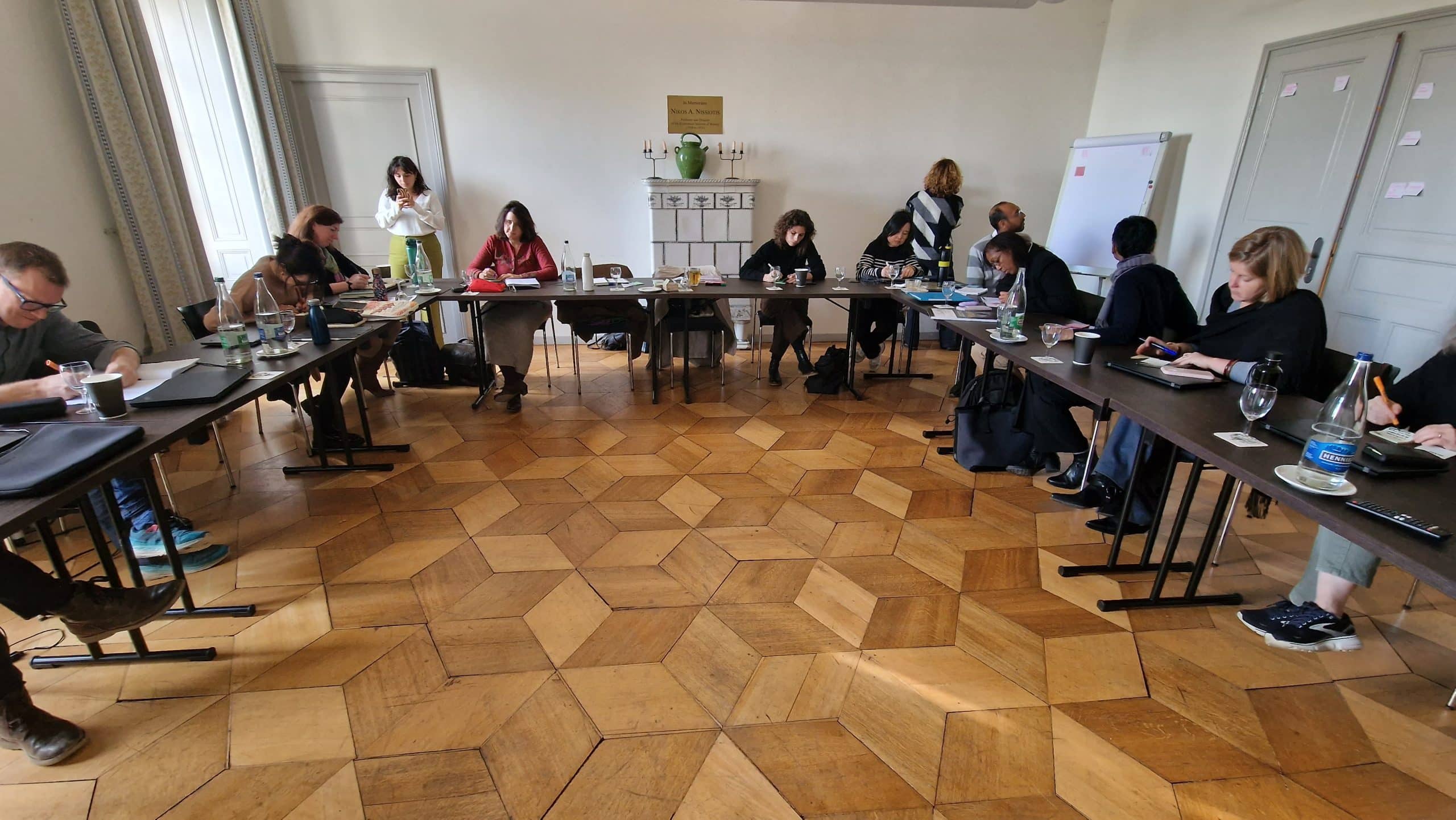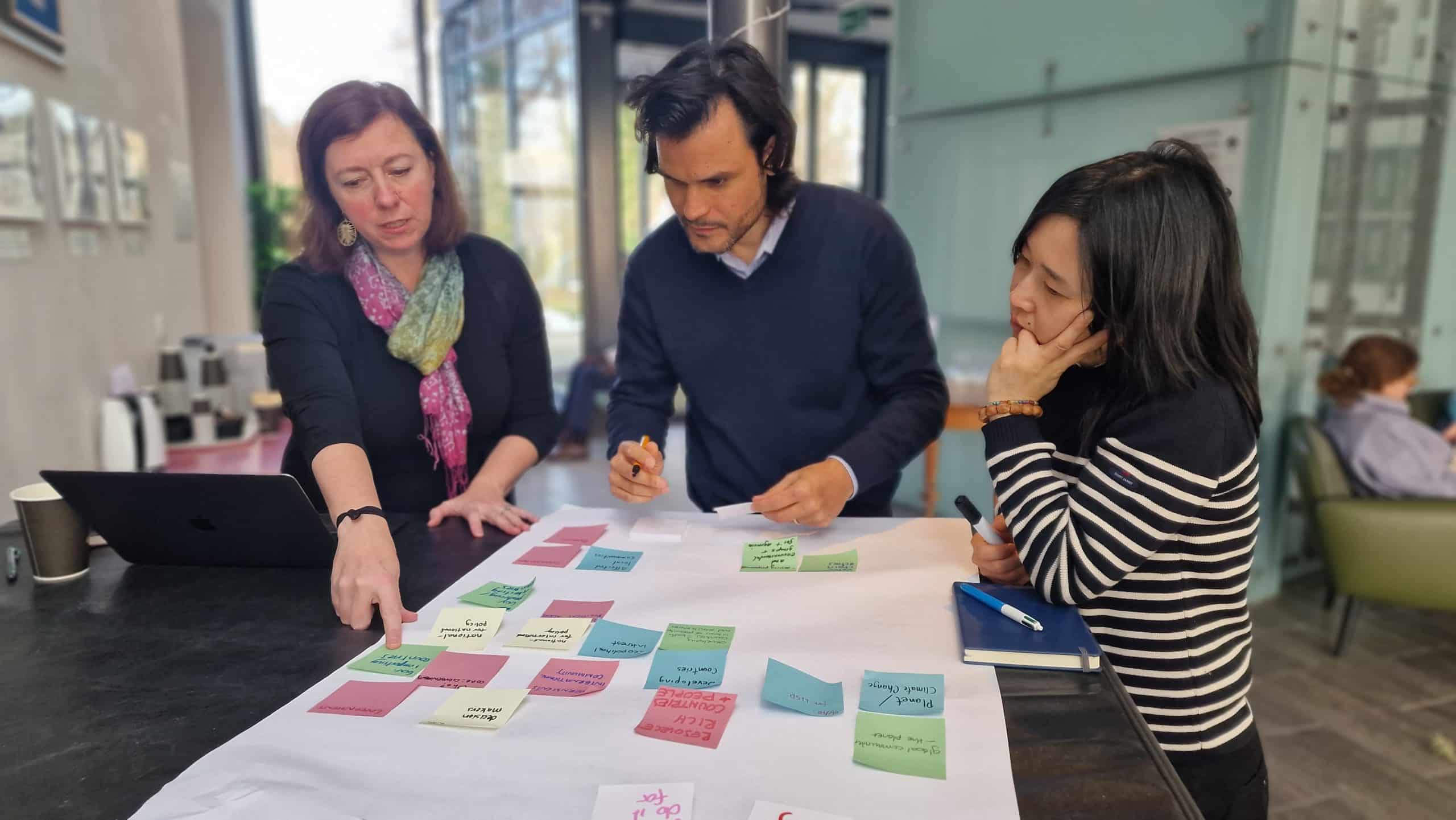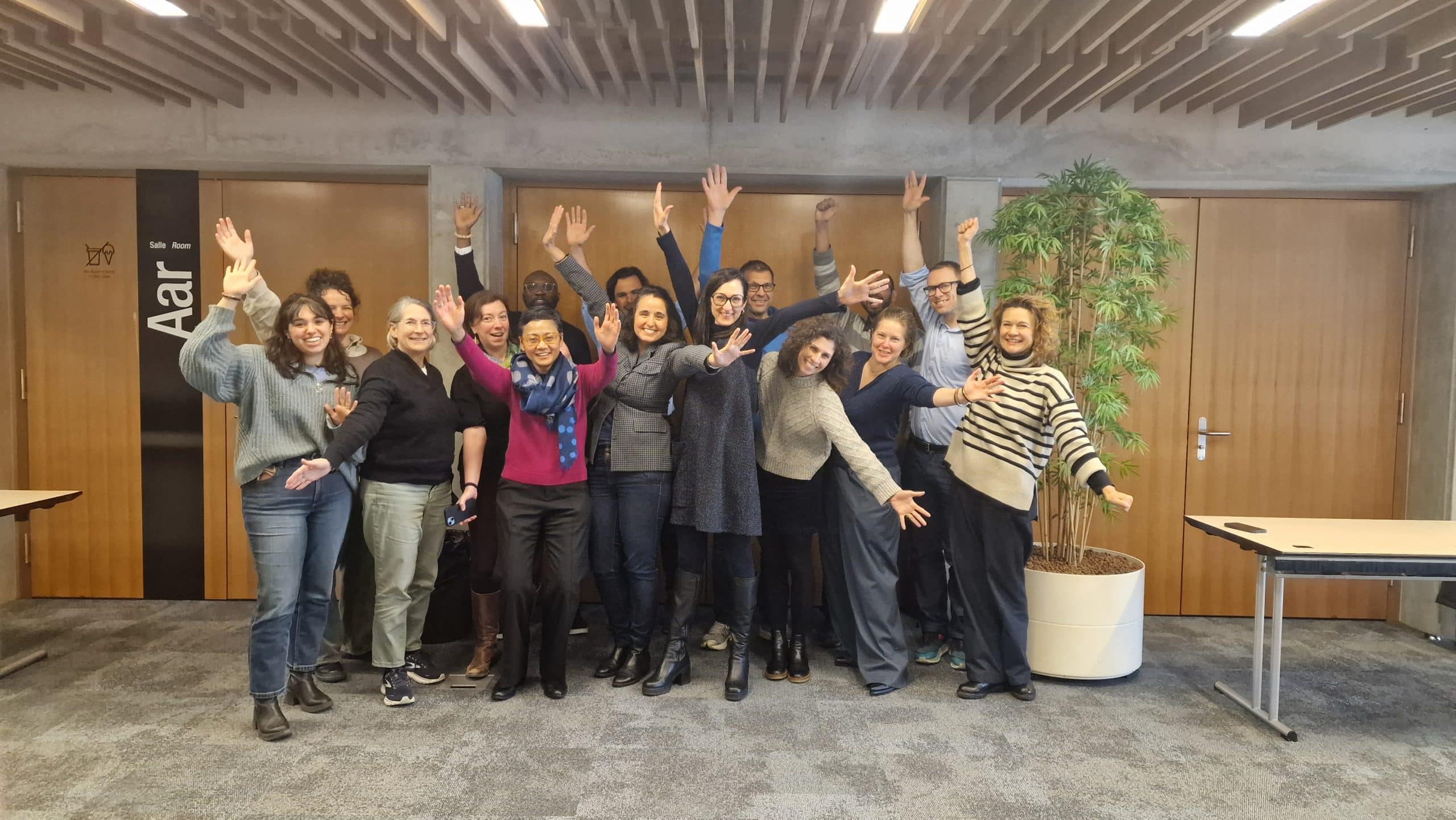Creating a Just Energy Transition: A Funding Proposal Sprint with IISD
Last January 15-19, 2024, 15 individuals from seven different teams at the International Institute for Sustainable Development (IISD) met each other face-to-face for the first time for a Sprint at the lovely Chateau de Bossey, near Geneva in Switzerland.
For their second ever Sprint, the team at IISD was joined by Book Sprints facilitators Barbara Ruehling and Alysa Khouri to craft a comprehensive funding proposal, with a Theory of Change at the center, on the subject of creating a just energy transition with a focus on critical minerals. The IISD has identified that while critical minerals are crucial to meeting climate goals and paving the way for green energy, it is also important to ensure that policies made in this area are sustainable as well as fair to developing countries and their economies. This thorough proposal would serve as the basis for future proposals to funding opportunities for IISD in this area of work.

The beautiful Chateau in Switzerland that was the location for this Sprint.
Why a Sprint?
The authors who came together from IISD have actually been working on a strategy paper for a year already, interviewing and writing to each other remotely. The output of their online conversations was a strategy paper that outlined the work IISD was doing on critical minerals across the seven teams, and the opportunities for future work collaborations. However, there was a need for meeting face-to-face to narrow down a strong strategic direction that would be necessary for writing funding proposals needed to realize these projects and opportunities. This was when they recalled how effective their first Book Sprint was, and decided to take the leap and try the method for this strategy paper as well.
Applying the Sprint Approach to Funding Proposals
The authors found that the leap of faith they took paid off. The Sprint was successful in putting together a comprehensive funding proposal including a Theory of Change that was concise, precise, and arrived upon through general consensus across the 15 experts present at the Sprint.
The main challenge of the Sprint was ensuring that all 15 experts were aligned on the core Theory of Change (ToC), upon which the rest of the document depended on. This ToC, albeit very short, required precision for every choice of word because of its implications for future goals, opportunities, and proposals of the overall project. The brevity of the ToC also meant each choice of word or phrase carried more weight and needed to be exactly on point. Over the course of just three and a half days, our Book Sprints facilitators guided the team through negotiating this ToC nearly word by word and gaining the consensus of 15 different minds. After that, they could develop the narrative of the proposal, the general context for the ToC, and additional elements such as proposed activities, risk mitigation strategies, and monitoring and evaluation. This meant the timeline of this Sprint was a bit different from the usual Book Sprints process. After a first day of mapping out the outline of the proposal, and drafting the introductory texts, Day 2 and half of Day 3 were dedicated solely to discussions of the higher levels of the ToC, to give the group the clarity on the overall outcome that they needed before being able to split off to do independent work in parallel.

Participants hard at work writing on their post-its for this funding proposal Sprint.

Authors broke out into groups to discuss sections of post-its from the larger discussion.
Unexpected Benefits of the Sprint
We always say that beyond the content of the publication, the Sprint method has hidden benefits to team dynamics that organizations are pleasantly surprised to find. In the case of IISD, the importance of in-person collaboration and knowledge exchange could not be overstated. Despite being from different teams all across the world, authors at this Sprint gained a deeper understanding of each other’s expertise and line of work. This newfound awareness highlighted the wealth of internal resources available in the organization, expanding the network of knowledge that each team could tap for consultation if needed.
The next steps for IISD include taking the output of this Sprint for internal review, with the goal of using it as a basis for adapting and creating proposals for future funding opportunities.

A wacky group photo for the joy of a successful Sprint!
Keep an eye out for more Sprint updates in the future! Never miss an update with us by following us at the links below.
—
Got a great idea? Tell the world with us through a Book Sprint.
Send us a message on IG, LinkedIn, or at contact@booksprints.net
